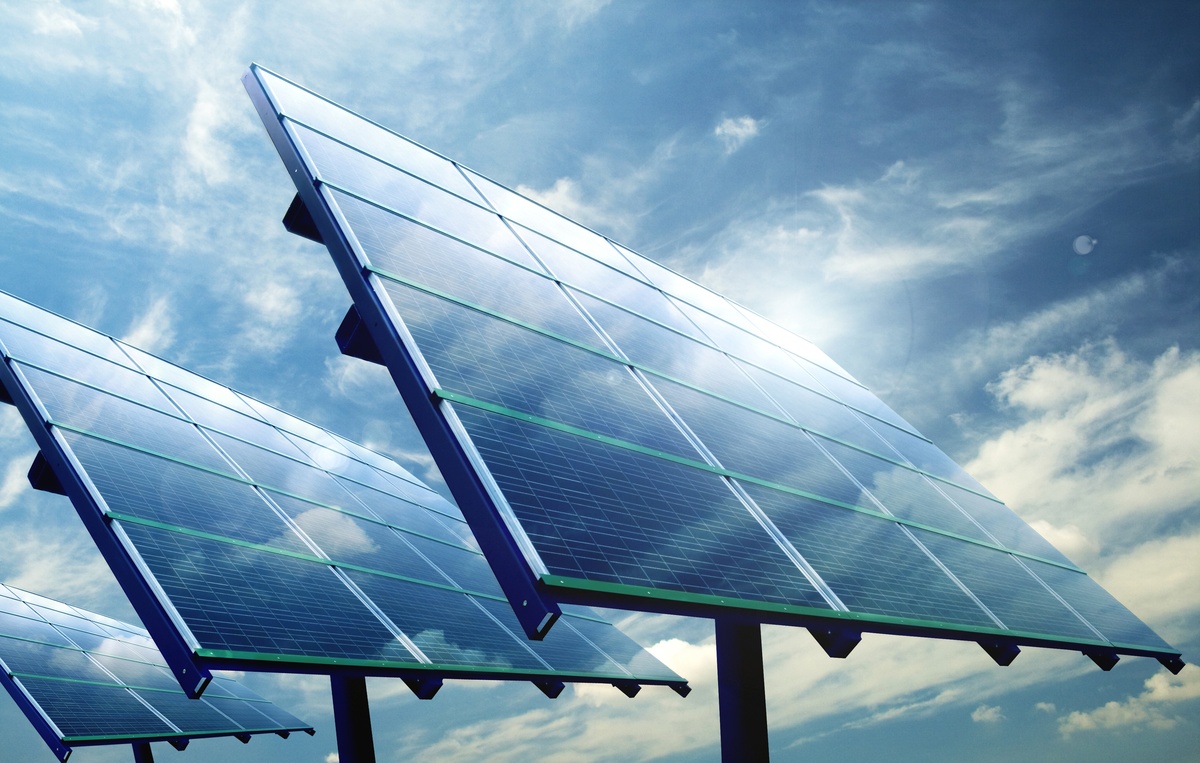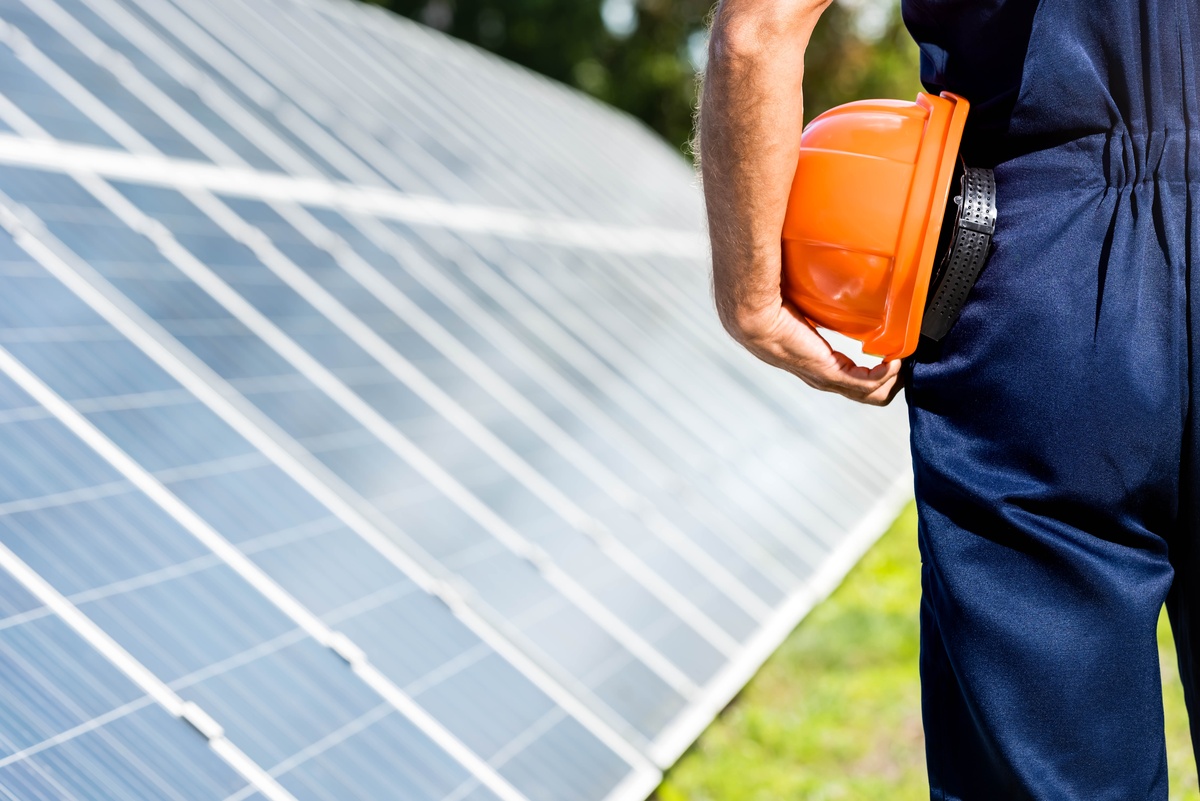Investing in solar energy is a smart choice for 2024
The year 2024 promises to be a pivotal moment in the evolution of renewable energy, particularly in the realm of solar power. Investing in solar technologies represents a strategically sound choice that not only contributes to environmental sustainability but can also yield significant economic benefits. In this article, we will explore the key aspects that make investing in solar energy a sensible and promising decision in 2024. We will delve into the advantages of solar energy, the current state of the industry, its growth potential, and strategies for successful investment in this rapidly advancing sector.
Analyzing the economic viability of solar investments in 2024

Analyzing the economic viability of solar investments in 2024 involves considering several factors, including costs, incentives, technological advancements, policy support, and potential returns on investment. Please note that the information provided is based on data available up to my last training cut-off in September 2021, and the situation may have changed since then.
- Cost Trends
- Incentives and Subsidies
- Policy and Regulatory Environment
- Technological Advancements
- Energy Storage Solutions
- Grid Integration and Demand Flexibility
- Return on Investment (ROI) and Payback Period
- Market Demand and Competition
- Environmental and Social Factors
The pros and cons of solar

Pros of Solar Investments:
Reduced Energy Costs: Solar power can significantly reduce or even eliminate electricity bills for homeowners and businesses. By generating electricity from the sun, you can decrease your reliance on grid electricity, which can be especially cost-effective in the long term.
Return on Investment (ROI): Solar panels have a relatively high upfront cost, but they typically offer a good ROI. Depending on factors like location, system size, and local incentives, you can recoup your initial investment within a few years and enjoy decades of virtually free electricity.
Tax Incentives and Rebates: Many governments offer tax incentives, rebates, and grants to encourage solar adoption. These financial incentives can substantially reduce the initial cost of installing solar panels, making the investment more attractive.
Environmental Benefits: Solar energy is clean and renewable, which helps reduce greenhouse gas emissions and dependence on fossil fuels. This environmental benefit can lead to positive public relations and, in some cases, cost savings related to carbon emissions regulations.
Energy Independence: Solar power can provide energy independence and security. It reduces reliance on fluctuating fossil fuel prices and the vulnerability of centralized energy grids.
Cons of Solar Investments:
High Initial Costs: Solar panel installation can be expensive, although costs have been decreasing steadily. The high upfront investment may deter some potential investors.
Intermittent Energy Generation: Solar power is dependent on sunlight, which is intermittent and varies with weather and time of day. This intermittency can necessitate additional investments in energy storage systems (like batteries) to ensure a stable power supply.
Space Requirements: Solar panels require a significant amount of space, which may not be feasible for properties with limited roof or land availability.
Maintenance and Repairs: While solar panels are low-maintenance, they are not maintenance-free. Dust, dirt, and occasional damage may require cleaning and repairs, which can add to the overall cost.
Technological Advancements: Solar technology is rapidly evolving, and investing in solar panels means locking into a particular technology for several years. Some investors may be concerned that newer, more efficient technologies could emerge shortly after their investment.
Regulatory and Policy Changes: Government incentives and regulations can change over time, impacting the financial attractiveness of solar investments. Investors should stay informed about local and national policies that affect solar energy.
Breaking down the сost of solar energy per kWh and how it will impact your wallet in 2023
Cost of Solar Energy per kWh:
- In 2021, the cost of solar energy per kWh ranged from approximately 7 cents to 19.8 cents, depending on factors like location, system size, technology efficiency, and local incentives.
- It is expected that the cost will continue to decrease by about 2% annually, and by 2023, it may drop to as low as 7 cents per kWh or even lower in some regions.
How Solar Energy Will Impact Your Wallet in 2023:
- Reduced Energy Bills: By investing in solar energy, homeowners and businesses can substantially lower their monthly electricity bills. With the decreasing cost of solar energy per kWh, the savings will be even more significant in 2023.
- Increased Savings Over Time: The reduction in solar energy costs per kWh acts as a long-term cost-saving measure. Over time, these savings accumulate, providing a solid return on investment and potentially allowing you to recoup the initial investment sooner.
- Potential for Profitability: In some regions, excess solar energy can be sold back to the grid, potentially generating revenue and further offsetting the initial investment in solar panels.
Reasons why investing in solar energy by 2024 will save you money

Investing in solar energy by 2024 can offer numerous financial benefits. Here are some key reasons why making this investment will save you money:
- Reduced Energy Bills:
By harnessing solar power, you can generate your electricity, which significantly reduces your reliance on the grid. This leads to substantial savings on your monthly energy bills. The cost of generating solar energy is lower than the cost of purchasing electricity from traditional sources.
- Return on Investment (ROI):
While there is an initial investment for purchasing and installing solar panels, these systems typically pay for themselves over time. The ROI comes from the energy savings, potential revenue from excess energy generation, and increased property value.
- Government Incentives and Tax Credits:
Many governments offer incentives and tax credits to promote the adoption of solar energy. These financial benefits can significantly offset the upfront costs of solar installation, making it a financially attractive option.
- Net Metering:
Net metering allows you to sell excess electricity generated by your solar panels back to the grid. This can result in additional income or credits on your energy bill.
- Protection Against Rising Energy Costs:
Solar energy provides a stable and predictable source of energy. As traditional energy costs rise over time, your solar energy system’s savings will continue to grow. This acts as a hedge against increasing energy costs.
- Increased Home Value:
Homes with solar panels tend to have higher property values. By investing in solar energy, you can potentially increase the resale value of your home, providing you with both short-term and long-term financial benefits.
- Environmental Impact:
Solar energy is not just about saving money; it’s also about reducing your carbon footprint. Investing in sustainable energy sources like solar power contributes to a cleaner environment, which can lead to long-term cost savings by mitigating the impact of climate change.
- Long-Term Cost Stability:
Solar panel systems have long lifespans and require minimal maintenance. This long-term cost stability ensures that your investment continues to save you money for many years.
- Grid Independence:
By generating your electricity, you become less dependent on the grid and the associated costs. This independence provides financial stability and resilience in the face of power outages or energy price fluctuations.
Factors to сonsider before going solar

- Location: Assess the amount of sunlight your area receives.
- Roof Condition: Ensure your roof is in good shape or budget for repairs.
- Energy Usage: Calculate your energy needs for the right system size.
- Financial Incentives: Research available incentives to reduce costs.
- Budget: Determine your solar installation budget.
- Energy Storage: Decide on adding batteries for backup power.
- Installer Choice: Select a reputable installer.
- Solar Panel Type: Choose from various panel types.
- Maintenance: Plan for periodic cleaning and inspections.
- Net Metering: Check if selling excess energy is an option.
- Regulations and Permits: Understand local requirements.
- Environmental Impact: Consider the environmental benefits.
- Long-Term Savings: Calculate the payback period.
- Warranties: Review panel and installer warranties
- Future Plans: Think about your long-term property plans.
In conclusion, 2024 presents an excellent opportunity for investments in solar systems. Currently, solar energy enjoys a 30% tax incentive, and with the ongoing increase in electricity bills, transitioning to solar energy not only reduces costs but also helps your savings grow. Furthermore, Flare offers exclusive programs with limited availability, making it essential to act swiftly to take advantage of these opportunities. Don’t miss the chance to harness the power of the sun and secure a more sustainable and cost-effective energy future.

